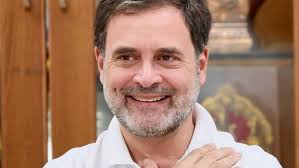BJP slams Rahul comments on Jaishankar’s meeting with Xi

A new political row has emerged between the BJP and the Congress. Rahul Gandhi sharply criticized External Affairs Minister S. Jaishankar for his meeting with Chinese President Xi Jinping. Gandhi referred to the diplomatic exchange as a “full-blown circus.” The BJP responded strongly, accusing Gandhi of damaging India’s global image and misunderstanding diplomacy.
Rahul Gandhi’s Controversial Statement
Rahul Gandhi recently spoke against India’s foreign policy under the Modi government. He questioned why Jaishankar updated Xi Jinping on India-China ties. Gandhi asked, “Why would India’s foreign minister brief the Chinese President when Chinese troops are still in Indian territory?”
He went on to call it “a full-blown circus,” saying the government is handling diplomacy like a show rather than with seriousness. Gandhi argued that India must be firm with China and demand a full border resolution before engaging further. He believes such meetings weaken India’s position and make it look soft on China.
BJP’s Quick Rebuttal
The BJP did not hold back in its response. Party spokesperson Tarun Chugh labeled Gandhi’s remarks “shameful” and “irresponsible.” He said Jaishankar met Xi to convey India’s concern about the Pahalgam terrorist attack and regional issues.
“Rahul Gandhi is misinformed and dangerous,” said BJP leader Ajay Alok. “He has no understanding of diplomacy. Yet, he comments on things he doesn’t grasp.”
Chugh emphasized that such meetings are essential to defend India’s interests. He accused Gandhi of trying to politicize national security and foreign relations. According to the BJP, diplomacy cannot be reduced to slogans or tweets. Leaders must engage with other nations, even rivals, to protect national interests.
India-China Relations in Context
Since the 2020 Galwan Valley clash, relations between India and China have been tense. Skirmishes at the border and military standoffs have continued. Despite multiple rounds of military and diplomatic talks, both sides remain cautious.
India’s official position is clear: full peace cannot return unless the border situation is resolved. Jaishankar has consistently repeated this in international forums. During the Shanghai Cooperation Organisation (SCO) summit, he reaffirmed India’s stance directly to Xi Jinping.
The meeting took place in Astana, Kazakhstan. Sources said India expressed its strong views on regional stability and border security. The government believes that direct communication reduces misunderstandings and builds pressure for peaceful solutions.
Congress’s Ongoing Criticism
This is not the first time Rahul Gandhi has targeted Jaishankar. He has previously accused the government of staying silent on China’s border aggression. He has also criticized India’s growing trade deficit with China.
Gandhi argues that despite military tension, India’s imports from China keep rising. He believes the government talks tough but acts soft. His criticism also extends to ties with neighbors like Nepal and the Maldives, where he claims India is losing influence.
Congress leaders have supported Gandhi, saying he reflects what many Indians feel. They accuse the BJP of suppressing facts and avoiding debate on foreign policy. However, the BJP views this as irresponsible rhetoric that could hurt India’s diplomatic efforts.
Foreign Policy as a Political Issue
Foreign policy has become a hot topic in Indian politics. Earlier, most parties avoided public debate on external affairs. But now, issues like border security, trade, and global diplomacy are key voter concerns.
With the 2026 general election approaching, both the BJP and the Congress are using foreign policy to influence public opinion. The BJP highlights India’s rising global profile, citing Jaishankar’s international speeches and successful diplomatic visits. Congress, on the other hand, says that symbolic gestures won’t fix real problems on the ground.
Voters are paying attention. Social media is flooded with discussions about India’s role in the world. National security, China relations, and trade ties are no longer niche topics. They’re central to how citizens judge their leaders.
Conclusion
Rahul Gandhi’s criticism of Jaishankar’s meeting with Xi Jinping has ignited another fierce political clash. The BJP stands by its foreign policy, calling it firm and balanced. Gandhi sees it as weak and chaotic. As tensions with China continue, the debate over how India should engage will likely remain front and center. Both parties hope to use this issue to connect with voters ahead of the next election.






